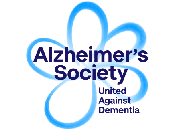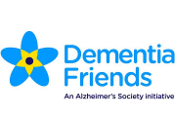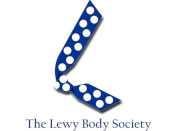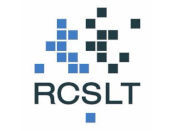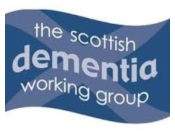
Living with dementia: getting out and about
Living with dementia: getting out and about
This factsheet is available for sponsorship, email marketing@dlf.org.uk
Sponsorship has no influence on our impartial content
Factsheet contents
- Introduction
- Driving with dementia
- Leaving the house
- Personal locators
- Walking aids
- Wheelchairs
- Social participation
- Accessing your needs
- Provision of equipment
- Funding sources for care
- For further advice from us
- Contributors
- Useful organisations and resources
- References and further reading
Introduction
Getting out and about is important for your health and well-being. Walking for example can help to maintain independence and confidence and has been shown to improve communication in people with Alzheimer's type dementia (Friedman and Tappen,1991). Walking can also help to:
- improve mood
- maintain balance
- improve strength
- improve stamina
- increase range of movement.
Going out alone can carry risks for people living with dementia and it is important to weigh these up with the benefits. The risks are less in the early stages of dementia, but increase as the condition progresses and the support of a family member or carer on trips out may become necessary.
People living with dementia may also be at a higher risk of falls. For this reason it is important to be equipped with the correct walking aid for outdoor use. An assessment for a walking aid carried out by an occupational therapist or physiotherapist is recommended. They will instruct you on how to use it safely: the incorrect use of a walking aid can contribute to falls.
Driving with dementia
For many people driving is an important part of life and if you have been driving for a long time it might feel like second nature to you. However, driving is a complex task that involves many skills and it is important that you are safe on the road.
A diagnosis of dementia does not automatically mean that you must stop driving. But as soon as you are diagnosed with dementia, you must:
- inform the Driver and Vehicle Licensing Agency (DVLA) of your diagnosis
- inform your insurance company straight away
- stop or suspend driving if your doctor has advised you to do so.
Or you may make the decision to stop driving yourself. This is called ‘voluntary surrender’. If you decide to give up driving, you will need to fill out a ‘Declaration of voluntary surrender’ form. A copy can be downloaded from www.gov.uk or obtained by calling the DVLA on 0300 790 6806. The completed form should be posted back along with your driving licence (Alzheimer’s Society, 2018).
If you would like to continue to drive and have informed the DVLA of your diagnosis, they will speak to your doctor and then decide whether to renew your licence. You may be asked to go for an assessment at a specialist driving centre to assist the DVLA in making a decision. These assessments are designed to be supportive and will allow for driving ‘habits’ whilst evaluating your road safety and cognitive ability. If your licence is renewed it will likely be for one year, after which it will be reviewed again.
More detailed information on driving with dementia can be found on the Alzheimer’s Society website. Information on how to record your diagnosis with the DVLA can be found on the GOV.UK website.
Leaving the house

Object locators and beeping key finders
We all sometimes misplace keys and everyday items, but this is more likely to be a common occurrence for a person with dementia and can lead to frustration and stress (Unforgettable, 2018).
Object locators can be attached to everyday items such as keys or a purse and can be helpful when searching for things within the home. The object locator typically consists of a beeper (that is attached to a key ring for example) and a remote control. Pressing the corresponding button on the remote control activates the beeper that's attached to the required item - the beeping helps guide to you towards its location.
Signage
Using signs on the door can act as a prompt to take keys, money, phone and coat etc with you when leaving the house. Storing these items in a basket, which is then positioned by the front door, can be also be of benefit.
Colour coding
If you have more than one key to get into your front door or building and find it hard to distinguish between them, you could try colour coding them. Coloured key caps or covers come in a range sizes and are designed to slip over and fit most keys.

Calendar or whiteboard
Using a calendar can help to keep track of the week’s events. Write in any activities or appointments you have planned, and try and stick to a routine e.g. 'swimming on Monday' or 'food shopping on Tuesday', so that each week has a similar pattern on the calendar. Cross off the days as they go by.
Memory clocks
Memory clocks typically consist of a large screen displaying the day, date and time for orientation. They can be programmed by a family member or carer to give a verbal message at a specific time of the day e.g. ‘time to go food shopping’ or programmed with daily, weekly, monthly or one-off reminders e.g. ‘time to go to the doctors’.
Personal locators
One of the earliest signs of dementia is the loss of ability to navigate (Lester Moffat Weiner Barnes Wolbers, 2017). There are several strategies and devices which may help with this. Listed below are some products which can help aid mobility and reduce the risks of getting lost.
GPS Trackers
![]() These come in a variety of designs - from simple pendant styles to more advanced trackers with a personal alarm or trackers that are situated within a watch, shoe or phone.
These come in a variety of designs - from simple pendant styles to more advanced trackers with a personal alarm or trackers that are situated within a watch, shoe or phone.
It can be felt that this equipment is an invasion of privacy, as the whereabouts of the person using the tracker can be monitored. However for some people, using a tracker and knowing that they can be found if they should get lost, can help improve their confidence and independence.
Before using a tracker, it is important that the person’s consent is obtained by a family member or carer (Mental Capacity Act, 2005) and that it is used in the person’s best interests. Those in the early stages of dementia, and for who a tracking device isn't necessary yet, imay express a wish to use GPS at some point in the future (Mental Health Foundation, 2013). More information on consenting to tracking devices or deciding what is in someone’s best interests can be sought from your local Social and Healthcare Team or the NHS. The full version The Mental Capacity Act 2005 and what it means for people living with dementia can be viewed here: www.legislation.gov.uk/ukpga/2005/9/contents
![]() Phones with GPS trackers
Phones with GPS trackers
Phones equipped with GPS trackers enable family members and carers to track the whereabouts of the person carrying the phone. Some models may have an emergency SOS button that will dial and/or text preset number/s when the wearer presses it.
GPS insoles
A GPS tracker is embedded in the shoe's insoles, which tracks the wearer's location. This equipment has an advantage over the GPS phone - if it is placed in a pair of regular shoes, it is less likely to be forgotten when the person living with dementia goes out.
Some NHS and Social and Healthcare Teams can assess for, and provide, basic GPS tracking devices as well as giving advice on living well with dementia.
Further reading: More information on personal locators can be found in DLF's factsheet, Choosing telecare.
Maps
The ability to use a map will be lost quite quickly as dementia progresses, so this strategy may only be useful in the earlier stages of dementia (Lester Moffat Weiner Barnes Wolbers, 2017). If using a map, it may be beneficial to mark a home address on it, as this will be of help if the person seeks assistance when lost. Waterproof maps are available to purchase or alternatively paper maps can be placed in a waterproof case to protect them. NB - a family member or carer should check that map reading skills are intact before use.
SOS Bracelets
 An SOS bracelet is a useful safety measure to have when you are out and about and at risk of becoming lost or unwell. It looks like a standard bracelet and is worn around the wrist. SOS bracelets store medical information such as allergies, medication and diagnosis, along with addresses and details of the wearer's next of kin and GP.
An SOS bracelet is a useful safety measure to have when you are out and about and at risk of becoming lost or unwell. It looks like a standard bracelet and is worn around the wrist. SOS bracelets store medical information such as allergies, medication and diagnosis, along with addresses and details of the wearer's next of kin and GP.
Walking aids
Walking sticks
NB - Whether you are purchasing privately or through the NHS, it is advisable to be measured for a walking stick by a healthcare professional.
The stick will need to be adjusted to the correct height for you. In addition, a health professional can assess that you can use the stick correctly, as incorrect use can lead to falls.
With certain types of dementia, such as dementia with Lewy Body for example, or Parkinson’s Disease, people may experience a deterioration in their mobility (Zupancic Mahajan Handa, 2011). If someone is more unsteady walking out of doors they may benefit from using a walking aid.
Walking sticks can assist with confidence, strength, stability and balance. There are various styles available on the high street, including those which fold up.
When choosing a walking stick ensure it has an unworn ferrule (rubber piece at the bottom) attached, this will need replacing periodically. It may be useful to personalise a walking stick, especially if the person lives in a residential or communal home as this may reduce confusion and the risk of the walking stick being mistaken for someone else's.
Here are a couple of examples of walking stick styles available.
Wooden walking sticks
These traditionally have a crook handle and are cut to the correct height. They are available in various diameters and strengths which are designed to take different loads. They are not as adaptable as metal walking sticks.
 Folding walking sticks
Folding walking sticks
These are lightweight metal walking sticks with sectioned shafts that enable them to be folded up for storage, for example in a handbag. Strong elastic runs inside the shaft to ensure that in its open position the stick remains stable. NB - ensure the person using a folding walking stick is able to fold and unfold it independently.
Fixed height or adjustable height versions are available. Some are provided with a plastic storage wallet.
Further reading: More information on walking sticks can be found in DLF's factsheet,Choosing walking equipment.
Wheeled walkers
NB This equipment may not be suitable for everyone with dementia.
Some people living with dementia may struggle with learning how to operate the brakes of wheeled walkers and to negotiate obstacles.
Wheeled walkers can be helpful for walking outdoors. Before purchasing, it is advisable to be assessed and measured for a wheeled walker by a healthcare professional. As well as checking if a walker is suitable and can be used safely, the healthcare professional will also provide a demonstration on how to operate it - for example applying the brakes or negotiating uneven surfaces.
As dementia progresses, increased supervision and prompting may be required with the walker - at this point a reassessment by a healthcare professional for a different type of walker or approach may be advisable (Susan Hunter University of Ontario Current Research, 2018).

NB - Walking aids should be approached with caution for people with a diagnosis of dementia. What works for one person won’t necessarily work for another and everyone will experience symptoms differently. Proper assessment and practice with a healthcare professional is always recommended.
Further reading: more information about walking aids can be found in DLF's factsheet Choosing walking equipment.
Wheelchairs
Some types of dementia, such as Lewy Body or Parkinson’s Disease, can particularly affect mobility and walking outside may become a challenge. At this stage, a wheelchair may be the answer for trips out.
Attendant-propelled chairs
An attendant-propelled chair (one which is pushed) is the best option, rather than an electric or self-propelling chair which is more complex to use and requires the mastering of new skills. One which folds, is lightweight and can be put into the boot of the car could be a good option.
The family member or carer should:
- be fit and healthy enough to push the wheelchair
- be shown how to push the wheelchair and how to negotiate uneven surfaces and kerbs
- be able to help the occupant on and off the wheelchair and help them get used to the sensation of being pushed in a wheelchair
- ensure that the occupant of the wheelchair is comfortable and is not at risk of getting out whilst it is moving.
Further reading: more detailed information on manual wheelchair use can be found in DLF's factsheet Choosing a manual wheelchair.
Social participation
Getting out and about is important and going for walks, visiting friends and family and attending to daily activities such as shopping are all part of this. Another is joining in with social activities. These can help you stay independent and provide a great sense of enjoyment. They can also help keep you in touch with other people and can improve your quality of life (Alzheimer’s Society, 2018).
Many areas of the country now have social activities specifically designed for people with dementia. These can include:
- day centres
- dementia cafes
- dementia friendly cinema showings
- art and craft groups - find out more on the Arts4Dementia website
- singing groups - for example Salvation Army, Singing by Heart project or Alzheimer’s Society, Singing for the Brain
- talking therapy groups
- exercise groups - for example The Sporting Memories Foundation
- holidays - for example Dementia Adventure
Further reading: Age UK offer general advice on living well with dementia and links to getting involved with social activities.
Some of these might be run by your local authority or NHS, others might be run by charitable organisations and volunteers. There may be a dementia advisor or dementia nurse working in your area who will be able to help you link into social activities or you can research them independently - for example through a local library or online.
It is possible to live well with dementia and getting out and about is very much a part of this. If you feel confident and competent to go out and about, you will be more able to participate in the social and everyday activities of your choosing.
Assessing your needs
A range of conditions may cause forgetfulness, anxiety, low mood and confusion, however they may also be early signs of dementia. A visit to your GP would be recommended to rule out other causes and allow for a better understanding of the illness and how it may progress, as well as strategies on how to manage the symptoms.
The assessment for dementia is a process that takes time and goes through various stages and tests. These may include a physical examination, a blood test and interviewing both the person and their concerned friend/relative separately. This may lead to a referral to a local memory service or clinic. The GP, Community Psychiatric Nurse or a member of the memory clinic staff will be able to advise on symptoms, how the disease may develop and provide information on appropriate treatment. They will also be able to advise you on what support there is available locally. Prior to an appointment it can be useful to keep a journal or diary of any tasks that have become more difficult or concerns that you may have.
The GP can refer you for a Health and Social Care Needs Assessment, or you can contact your local authority Adult Social Care Department and make a self-referral, or have a friend or relative do it for you. By law anyone who appears to need care and support can request an assessment regardless of their income or savings.
The assessment will focus on your needs, how they impact on your well-being and on what you want to achieve and will aim to identify any difficulties you may have in caring for yourself. An Occupational Therapist will carry out the assessment and will be able to advise on strategies to help reduce any identified risks and recommend any equipment that may be helpful to maintain independence. If someone else is helping you they are also entitled to a carers assessment, which will help to identify what help and support they may need.
There are a number of charitable organisations listed below that can provide help and support for the person with dementia and their relatives and carers.
Provision of equipment
Many simple assistive technology devices mentioned in this fact sheet can be privately purchased. Others can be provided by local authorities or the NHS to meet an assessed need; you or a family member can request a home assessment from an occupational therapist
Permanent loan: Local Authority and health provision
If you require disability equipment, telecare or adaptations to your home then your local authority may be able to help. They can supply equipment or minor adaptations that cost under £1,000, free of charge. (Department of Health 2014, section 2.9). In Scotland, Local Authorities make their own arrangements for provision of minor adaptations and details can be accessed via your Council's website.
Some equipment such as pressure relieving cushions, mattresses, some mobility aids and wheelchairs are supplied by your local Health Authority. A referral to the District Nurse or Wheelchair Service for these items can be made via your GP or other health professionals including a Community Occupational Therapist or Physiotherapist.
Disabled Facilities Grant (DFG)
Should you need adaptations to your home that cost more than £1,000 that will allow you to continue to live there, you may be eligible for a Disabled Facilities Grant (DFG). An Occupational Therapist will complete an assessment and if the work is deemed necessary to meet your needs and is reasonable and practical, then they will arrange for a financial assessment to be undertaken.
If you meet the criteria for funding, the Occupational Therapist will make recommendations for the adaptations required.
Private purchase
If you do not wish to use local authority services, there are independent Occupational Therapists who can assess your needs and help to advise or assist you in buying any equipment or arrange adaptations to your home that you may require.
You can also purchase equipment privately, but it is recommended that you compare different options first. There may be an equipment demonstration centre near you where you can look at and try out equipment before purchasing, as well as receiving impartial advice.
Charity and Grant funding
Charitable trusts may sometimes provide equipment or give a grant for equipment purchase.
Turn2Us is a national charity that helps people who are in financial difficulty find grants for the provision of equipment, and Community Care gives a list of charitable organisations that give grants.
Charities tend to give awards in accordance with a predetermined criterion, so it is important that you carefully select the organisations that apply to your condition. There are also some workplace charities that will provide support for ex-employees. If you are or have served in the Armed Forces, or are a dependent or carer of a person who has served, The Royal British Legion may be able to provide you with support for specialist dementia care or grants for equipment and adaptations to your home, or small crisis grants to meet unexpected expenses.
Funding sources for care
If you need support with daily tasks that may include help from a carer, the delivery of meals or residential care then your local authority may help with the cost. How much support you are entitled to will depend on your income and savings and what your care needs are. A financial assessment of your means will be carried out to establish how much support you are entitled to.
You may be eligible for further financial support such as Attendance Allowance or Personal Independence Payment (PIP) and if you have a person who cares for you for 20 hours or more a week, they may be eligible for some financial support.
If you live alone you can apply to your local authority for a 25% reduction on your Council Tax bill, or if you live with someone else then they may be eligible for a 25% reduction on the Council Tax bill. As your condition progresses, they may be eligible for a further 25% reduction.
Private carers and residential care
If you are looking for a carer or are considering residential care, then you should ensure that the staff are trained in dementia care and are able to give the specialist help you need. A residential home should be designed to provide the best possible environment for you. There are a number of organisations that can help you with choosing a suitable home, including:
- Elderly Accommodation Council
- Housing Care.org
- DementiaUK
- Relatives and Residents Association
- Paying for Care
Care Home ratings/selector
Inspection reports and care home ratings can be found via:
- England – Care Quality Commission
- Scotland – Care Inspectorate
- Wales – Care Inspectorate Wales
- Northern Ireland – Regulation and Quality Improvement Authority
Charity and Grant funding
Charitable trusts may sometimes provide funding for care, nursing or residential respite, permanent care or a befriending service. Charities tend to give awards in accordance with a predetermined criterion, so it is important that you carefully select the organisations that apply to your condition. There are also some workplace charities that will provide support for ex-employees. If you are or have served in the Armed Forces, or are a dependent or carer of a person who has served, The Royal British Legion may be able to provide you with support for specialist dementia care or small crisis grants to meet unexpected expenses.
Further information relating to grants is available from:
- Community Care – a list of charities providing grants.
- Turn2us - Turn2us is a national charity that helps people in financial hardship gain access to welfare benefits, charitable grants and support services.
- Housing grants information from Disability Rights UK - led by people with diverse experiences of disability and health conditions, from different communities.
- Disability Grants - grants for disabled adults.
- My grants - accessibility grants for disabled and older people.
- Grants for individuals - this website is run by the Directory of Social Change and lets subscribers search for grants. It is intended for organisations searching for funding on behalf of individuals.
- The Money Advice Service - Charitable grants and major and minor adaptations.
VAT relief
If you have a diagnosed long-term condition, you may be able to claim VAT relief on purchases relating to the condition. The company supplying the equipment should be able to advise you, or there is general information on VAT relief on the GOV.UK website.
For further advice from us
For clear, practical advice and information on products and suppliers of daily living equipment, please have a look at our Living made easy website.
If you would like further advice related to choosing equipment for everyday living you could try relevant sections of AskSARA, our free online guided advice tool. AskSARA will ask you questions about yourself and your environment and then offer relevant advice, product suggestions and supplier details.
You can contact the DLF Helpline, which is open Monday to Friday from 10am to 4pm. Tel: 0300 999 0004 (calls charged at your standard land line rate even if you are phoning from a mobile).
Alternatively, you may wish to contact us via email: info@dlf.org.uk or by letter: DLF, 34 Chatfield Road, Wandsworth, London SW11 3SE.
To help us give you a concise and informative reply, please provide us with as much detail as possible, including information on the difficulties you are having and any solutions you have considered, such as equipment ideas.
Another source of advice is a disabled or independent living centre where you would have the opportunity to try out a range of equipment. There are several of these around the country where you can go for impartial advice. Your local authority will also be able to give you details of centres in your area.
Contributors
Roisin Hodgson
 Roisin Hodgson qualified as an occupational therapist in 1993 and has worked extensively in hospitals and within the community. Now working as a private occupational therapist, Roisin has an interest in occupational therapy approaches to anxiety, panic and post traumatic stress disorder. Many of Roisin's clients have dementia; she works with them and their families advising on a range of solutions to help maintain independence, including home adaptations, daily living aids and telecare.
Roisin Hodgson qualified as an occupational therapist in 1993 and has worked extensively in hospitals and within the community. Now working as a private occupational therapist, Roisin has an interest in occupational therapy approaches to anxiety, panic and post traumatic stress disorder. Many of Roisin's clients have dementia; she works with them and their families advising on a range of solutions to help maintain independence, including home adaptations, daily living aids and telecare.
Rebecca Woodfield
 Rebecca Woodfield is an occupational therapist working for the NHS in Oxfordshire. Rebecca works with older adults in the community, supporting people to live independently in their own homes. Rebecca has a BSc (Hons) degree in Occupational Therapy from Coventry University and is currently studying a masters module Expertise in Dementia with the University of West London.
Rebecca Woodfield is an occupational therapist working for the NHS in Oxfordshire. Rebecca works with older adults in the community, supporting people to live independently in their own homes. Rebecca has a BSc (Hons) degree in Occupational Therapy from Coventry University and is currently studying a masters module Expertise in Dementia with the University of West London.
Nina Evans
 Nina Evans works alongside the design team at Designability. Working in partnership with users, carers and professionals, Nina carries out clinical trials with end-users, developing and promoting assistive technology to improve quality of life. Nina's qualifications include a Diploma of the College of Occupational Therapists and an MSc in Clinical Research.
Nina Evans works alongside the design team at Designability. Working in partnership with users, carers and professionals, Nina carries out clinical trials with end-users, developing and promoting assistive technology to improve quality of life. Nina's qualifications include a Diploma of the College of Occupational Therapists and an MSc in Clinical Research.
Useful organisations and resources
Age UK Advice is a free, confidential, national phone service for older people, their families, friends, carers and professionals. Their team of experts can provide advice and information on a number of topics including benefits, concerns about hospital stays, advice choosing care homes etc. The website can signpost you to local services including home helps, foot care, handy person services and dementia support.
The Age UK network includes Age Scotland, Age Cymru and Age NI.
Alzheimer's Society's website provides advice and support regarding all aspects of dementia – including the different types of dementia, symptoms, diagnosis and treatments available. They also run Dementia Connect, a comprehensive services directory for people affected by dementia - areas cover England, Wales and Northern Ireland.
.
Website: www.alzscot.org
24 hour Dementia Helpline: 0808 808 3000
Alzheimer Scotland provides a wide range of specialist services for people with dementia and their carers. They offer personalised support services, community activities, information and advice at every stage of the dementia journey.
Disabled Living
Burrows House, 10 Priestley Road
Wardley Industrial Estate, Worsley
Manchester, M28 2LY
Website: www.bbuk.org.uk
Telephone: 0161 607 8219
Email: bbuk@disabledliving.co.uk
Bowel and Bladder UK's National Confidential Helpline is managed by a team of Specialist Nurses and Continence Product information staff, who can be contacted for advice on specialist services, product information and general advice to help treat or manage bladder and bowel problems that may occur as a symptom of Dementia. Opening hours Monday to Friday 9am–4.30pm.
5th Floor, Charles House
148/9 Great Charles Street Queensway
Birmingham, B3 3HT
Website: www.bda.uk.com
Telephone: 0121 200 8080
The BDA is the only body in the UK representing the whole of the dietetic workforce. It is a trade union and professional body representing the professional, educational, public and workplace interests of its members.
Head Office
20 Great Dover Street
London SE1 4LX
Website: www.carersuk.org
Telephone: 020 7378 4999
Carers UK provide advice and support for all carers, whether they are new to looking after someone or have been a carer for a long time. Their telephone advice and support service is available if you wish to talk to someone about caring, with further information and advice available on the website. The website also provides contact details for Carers Wales, Scotland and Northern Ireland.
Carewatch Care Services Ltd
Libra House, Sunrise Parkway
Linford Wood
Milton Keynes MK14 6PH
Website: www.carewatch.co.uk
Telephone: 01908 557 950
Carewatch provide home care services throughout the UK, designed to enable people to remain as independent as possible within their own home. They offer multiple services including home visits, personal care, practical help, live-in care and dementia care at home and long term home care.
Dementia Friends provides information, support and learning for those who have a relative or know someone with dementia. Anyone of any age can be a dementia friend. Visit their website for more details.
Second Floor
356 Holloway Road
London N7 6PA
Website: www.dementiauk.org
Telephone: 020 7697 4160
Support line: 0800 888 6678
Dementia UK provide specialist dementia support for families through their Admiral Nurse service. The Admiral Nurses work with families giving one-to-one support, expert guidance and practical solutions.
Unity House
Westwood Park
Wigan, WN3 4HE
Website: www.lewybody.org
Telephone: 01942 914000
Support line: 0800 888 6678
Email: info@lewybody.org
The Lewy Body Society funds research into Dementia with Lewy Bodies (DLB). It's mission is to raise awareness of DLB among the general public and those in the medical profession and decision making positions, They also provide information resources for patients and carers.
Website: www.nhs.uk
NHS Choices provides comprehensive information on the help and support available for people living with dementia. Other NHS websites include: NHS Inform (Scotland), Health and Social Care online (N.I.) and NHS Direct Wales.
Website: www.nhs.uk
The Patient Advice and Liaison Service from the NHS offers confidential advice, support and information on health-related matters. They provide a point of contact for patients, their families and their carers when using NHS services. Your local PALS service can be located using the search facility on their website.
Website: www.nice.org.uk
NICE provides national guidance and advice to improve health and social care.
The RICE Centre
Royal United Hospital
Combe Park
Bath, BA1 3NG
Website: www.rice.org.uk
Telephone: 01225 476420
Email: info@rice.org.uk
RICE is a registered charity committed to undertaking and publishing effective research aimed at improving the diagnosis, assessment and treatment of people with Alzheimer’s disease and other forms of dementia. The charity also offers several healthcare services for people living with dementia including a memory clinic.
106-114 Borough High Street
Southwark
London SE1 1LB
Website: www.rcot.co.uk
Telephone: 020 7357 6480
Email: reception@rcot.co.uk
The Royal College of Occupational Therapists is the professional membership body for occupational therapy staff in the UK. Their website includes information on how to find an independent occupational therapist through their online directory.
2 White Hart Yard
London SE1 1NX
Website: www.rcslt.org
Telephone: 020 7378 1200
The RCSLT is the professional body for speech and language therapists in the UK providing leadership and setting professional standards.
81 Oxford Street
Glasgow, G5 9EP
Website: www.sdwg.org.uk
Telephone: 0141 410 1171
Email: sdwg@alzscot.org
Funded by Alzheimer Scotland and the Scottish Government SDWG is an independent group run by people with dementia, their families and carers, which campaigns on behalf of, and provides a voice for, people living with dementia in Scotland.
Watson House
54 Baker Street
London W1U 7EX
Website: www.scie.org.uk
Telephone: 020 7766 7400
Email: info@scie.org.uk
The Social Care Institute for Excellence (SCIE) improves the lives of people who use care services by sharing knowledge about what works. It is a leading improvement support agency and an independent charity working with adults’, families’ and children's care and support services across the UK. The website contains a library of resources and services on wide range of topics, including dementia.
Watson House
54 Baker Street
London W1U 7EX
Website: www.sfe.legal
Telephone: 0844 567 6173
Email: sfe@standagency.com
Solicitors for the Elderly provide a service to help you locate a local solicitor, near you, to help you with wills, power of attorney, trusts, probate, paying for care and other legal needs. They are a national organisation across the UK and the Republic of Ireland
Wimslow House
Water Lane
Grove Way
Wimslow, SK9 5AG
Website: www.tsa-voice.org.uk
Telephone: 01625 520320
Email: admin@TSA-Voice.org.uk
The website has information on the telecare industry and the services it provides to individuals. The TSA aims to promote and support the telecare industry and highlight the benefits of telecare for service users, their friends, family and carers.
Released January 2019, to be reviewed by January 2022, Version 1
References and further reading Show references
Age UK: Living well with dementia. Available from www.ageuk.org.uk/information-advice/health-wellbeing/conditions-illnesses/dementia/living-well-with-dementia
Alzheimer's Society: Keeping active and involved. Available from www.alzheimers.org.uk/get-support/staying-independent/keeping-active-involved
Alzheimer's Society: Continuing to drive. Available from www.alzheimers.org.uk/get-support/staying-independent/continue-driving
Carehome.co.uk: Pimped up Zimmer frames reduces falls and confusion for care home residents with dementia. Available from www.carehome.co.uk/news/article.cfm/id/1582010/Pimped-up-Zimmer-frames
legislation.gov.uk: The Mental Capacity Act UK 2005. Available from www.legislation.gov.uk/ukpga/2005/9/contents
Mental Health Foundation: Dementia and GPS tracking. Available from www.mentalhealth.org.uk/blog/dementia-and-gps-tracking
Friedman R, Tappen RM (1991) The effect of planned walking on communication in Alzheimer's disease Journal of American Geriatrics Society Volume 39 Pg 650-654/
Lester, AW, Moffat SD, Wiener JM, Barnes CA, Wolbers T. (2017) The Ageing Navigational System Neuron Volume 95 (5) PG 1019-1035
Zupancic M, Mahajan A, Handa K. 2011 Dementia With Lewy Bodies: Diagnosis and management for Primary Care Providers. The Primary Care Companion for CNS Disorders. V13(5)
Dogru E, Kizilci H, Balci NC, Korkmaz NC, Canbay O, Katayfic N. (2018) The effect of walking sticks on balance in geriatric subjects. The Journal of Physical Therapy Science Volume 28 (12) Pg 3267-3271 20161)
Hunter S. (2018) Ongoing research at the University of Ontario.
For more information on the Types of Evidence, please visit http://www.livingmadeeasy.org.uk/scenario.php?csid=276
AskSARA
If you would like further advice regarding daily living equipment related to choosing equipment for everyday living you could try relevant sections of AskSARA. AskSARA is our free online guided advice tool. AskSARA will ask you questions about yourself and your environment and then offer relevant advice, product suggestions and supplier details.
| Attachment | Size |
|---|---|
| 14.53 KB | |
| 31.26 KB | |
| 19.83 KB | |
| 30.17 KB | |
| 30.67 KB | |
| 15.76 KB | |
| 17.19 KB | |
| 32.72 KB | |
| 22.35 KB | |
| 563.58 KB |
All rights reserved. No reproduction or transmission of this publication may be made without written permission. Inclusion (including any sponsorship) does not indicate endorsement or that any item has been recommended or tested. All information is provided without legal responsibility.
Disabled Living Foundation, Tel: 020 7289 6111, Fax: 020 7266 2922, Helpline: 0300 999 0004 10.00am-4.00pm, Email: helpline@dlf.org.uk, Website: www.dlf.org.uk
Reg. Charity No: 290069, VAT Reg. No: 226 9253 54
 (Tell me about the standard)
(Tell me about the standard)

Your personal information is required in order to claim Gift Aid. This information is kept by DLF/Shaw Trust for financial audit purposes. For more information on our privacy policy visit: https://www.dlf.org.uk/content/privacy-policy


